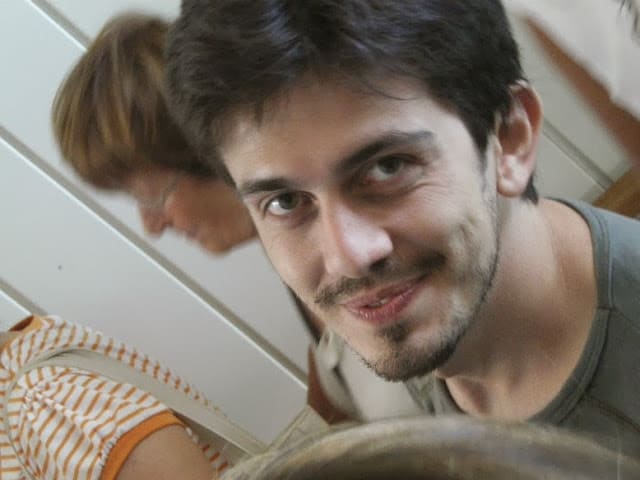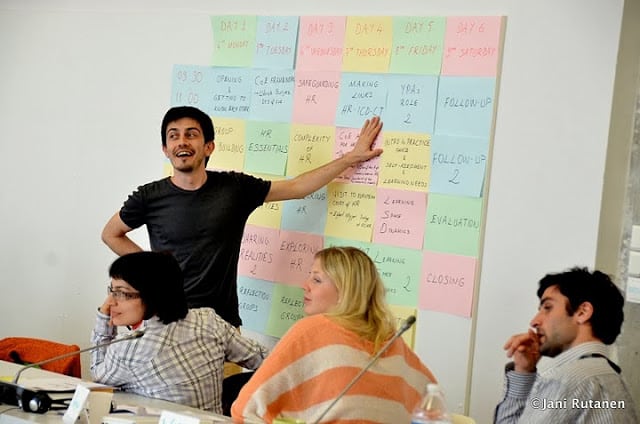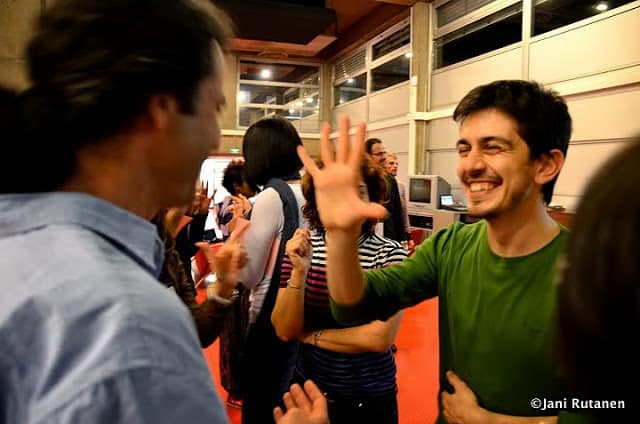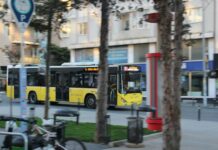Istanbul is a very vibrant city, full of young people. Although I did not know too many Turkish people when I started visiting the city, I have ended up with a big circle of young Turkish friends based in Istanbul. Most of the younger generation of Istabulites are very active in society and very willing to learn how other Europeans live, their culture and thus, are ready to interact with them. Working together towards a common goal and on a basis of a transnational project, to be implemented in 2014 in Istanbul and Athens, I have met Ragip Zik, a young Istanbulite, who is aspiring to be one of these people who brings positive change into society as part of a global world.
Ragip Zik is 32 years old. He grew up in Kocaeli and came to Istanbul to study Business Administration. Currently, he holds an MA in Cultural Studies and works in a civil society organization. He also volunteers in other civic initiatives.

CL: Ragip, you are involved in a new initiative called BABİL Association. Would you like to say a few things for the work this organization?
RZ: BABİL is an initiative founded by people committed to intercultural dialogue, democratic values and human rights. It undertakes research and investigation in literature, arts and culture fields and aims to promote communication, interaction and cooperation among different parts of the society. Most currently, we conduct a research about Greeks in Turkey during Republican history and soon to share outcomes in the form of an exhibition.
CL: Why have you chosen to work for the Non Governmental sector? I know it is not at all easy to implement such type of projects and especially in countries like Turkey! Can you summarize in a sentence how do you feel when you get funding for a new project and how do you feel when the project ends?
RZ: It’s the environment where I feel myself fully engaged. There is high level of energy, continuous human contact, flow of information and opportunities for self-development. I was sure to work in this sector, when I was at the university but it was not an easy way to take. Organizations older than 5 years were few and civil society work was not regarded professional by the major part of the society, which is still common. Moreover, there are issues of transparency, credibility and sustainability. At the same time, increasing number of international donors are interested in Turkey (maybe it decreased a bit within the last years due to the government’s policies). This brought about generating project ideas for random funds, what is called “project fetishism”. I find it meaningful when the project idea really corresponds to a societal problem/need. If such idea gets funding I would be only happy to carry the project out. Then, it would be a normal life cycle for the project to come to an end when it accomplishes its mission.

CL: Turkey and especially Istanbul will not be the same after 2013. Do you think the young generation is more thoughtful nowadays and if so, in what ways? Do you feel that the Turkish society is changing and how is this change depicted on the younger generation?
RZ: I believe the young generation was always thoughtful. We usually hear nostalgic words longing for the “good old times’ youth ”, but actually each generation is shaped and concerned with contemporary issues and atmosphere. Young people are equipped and prepared to follow today’s politics and do not necessarily use former ways and methods. Society is definitely changing and I think the younger generation is much more engaged with communicating their peers from all over the world. That creates a solid platform for intercultural dialogue and mutual understanding. They respect much more to all forms of differences that might have been source of conflict for elder generations.
CL: If an international donor would give you the money to implement a not for profit project for one month in Istanbul, what would this project be and how would you implement it?
RZ: I think it would be a project about environmental issues and urban transformation: Less use of private cars and more of public transport as well as bicycles and electric vehicles; promoting forestation, recycling, eco-buildings etc. I’m not sure if one month would be enough though.

CL: “Istanbul: You call it chaos, we call it home”. What does this sentence mean for you? How do you spend your free time? If a friend from abroad would come and you had one day to take him/her around, where would you take him / her?
RZ: I do call it a chaos as well J It is an enormous city and definitely not so easy to live in. Beyoğlu (formerly Pera) is the social and cultural heart of the city where one must see. Old buildings, cultural centres, back streets, hidden tasty food corners, coffee houses, handicraft shops and pubs offer interesting experiences not only to foreigners but to Istanbulites as well. But if to take a day off from the “chaos”, Antigoni (Burgazada) is my favourite place.
If you would like to request more information, you can email Ragip at: ragipz@gmail.com
You can also visit the BABIL webpage: www.babilder.org
You can learn more about BABIL’s latest project, 20 Dolar 20 Kilo, about the 1964 Rum (Greek) minority deportations here: http://1964.babilder.org/en/
Photos from Ragip Zik
This post originally appeared on ‘City Box’ Athens – Istanbul, a blog run by Chara Loka. Go check out her site for more interesting reads!









